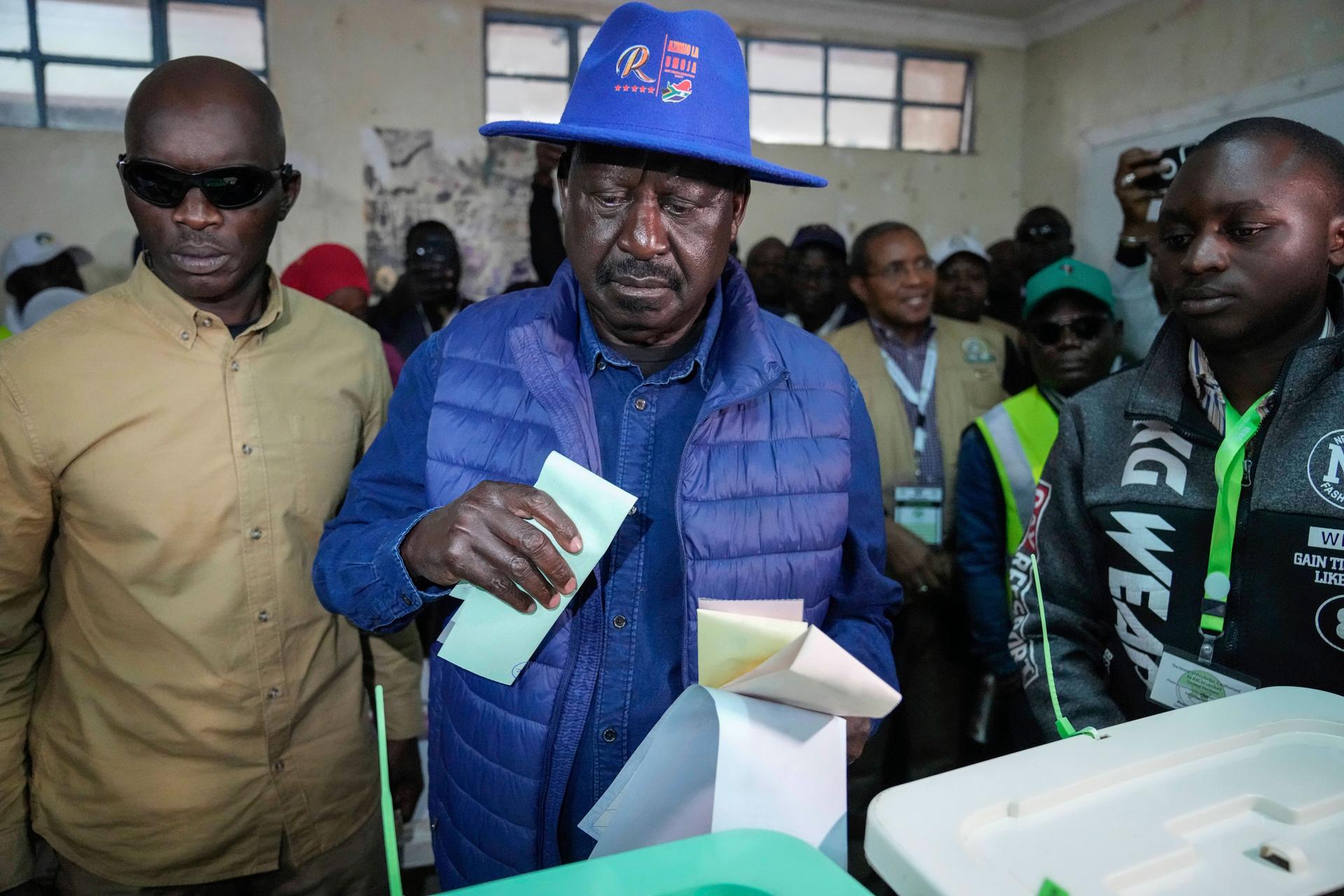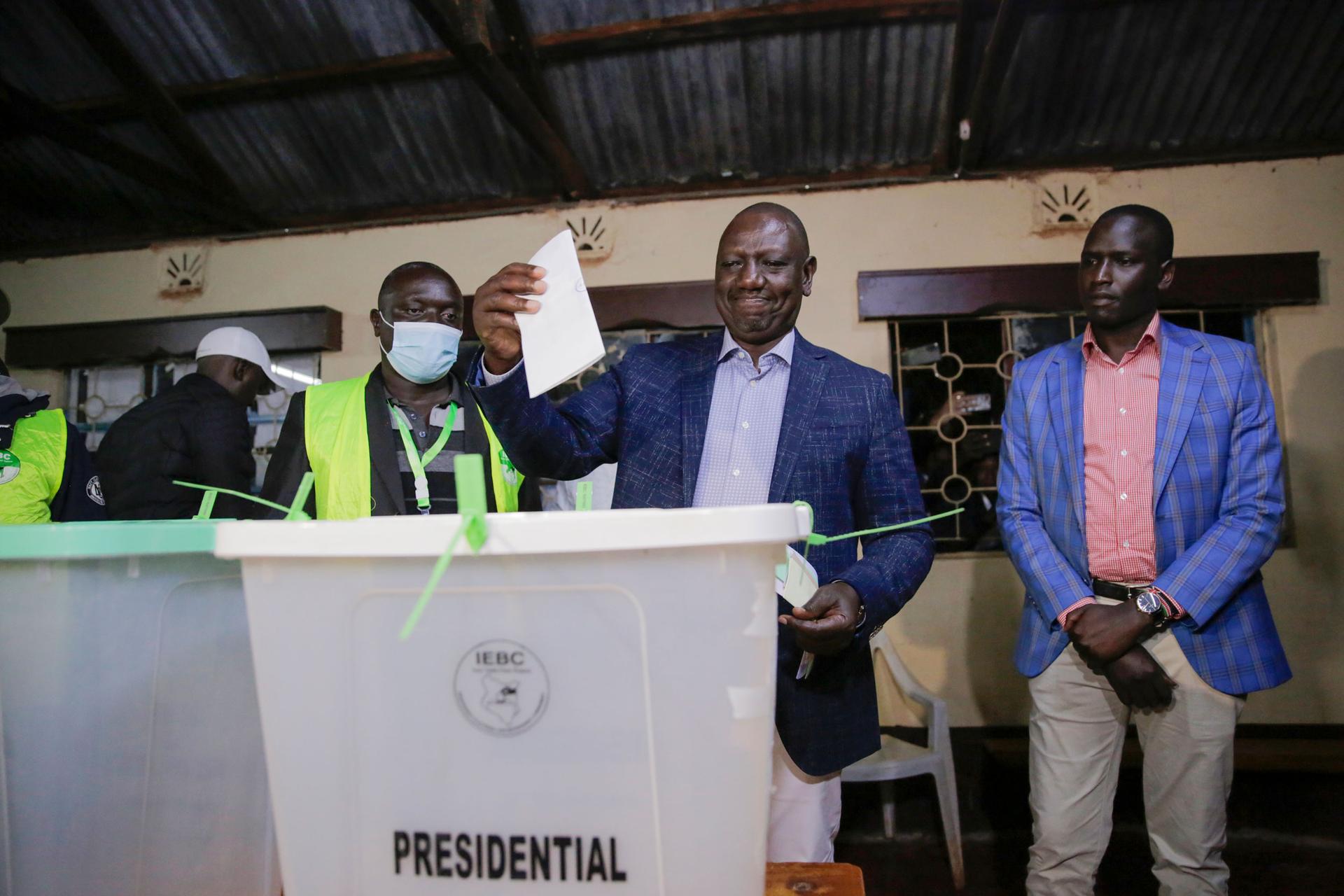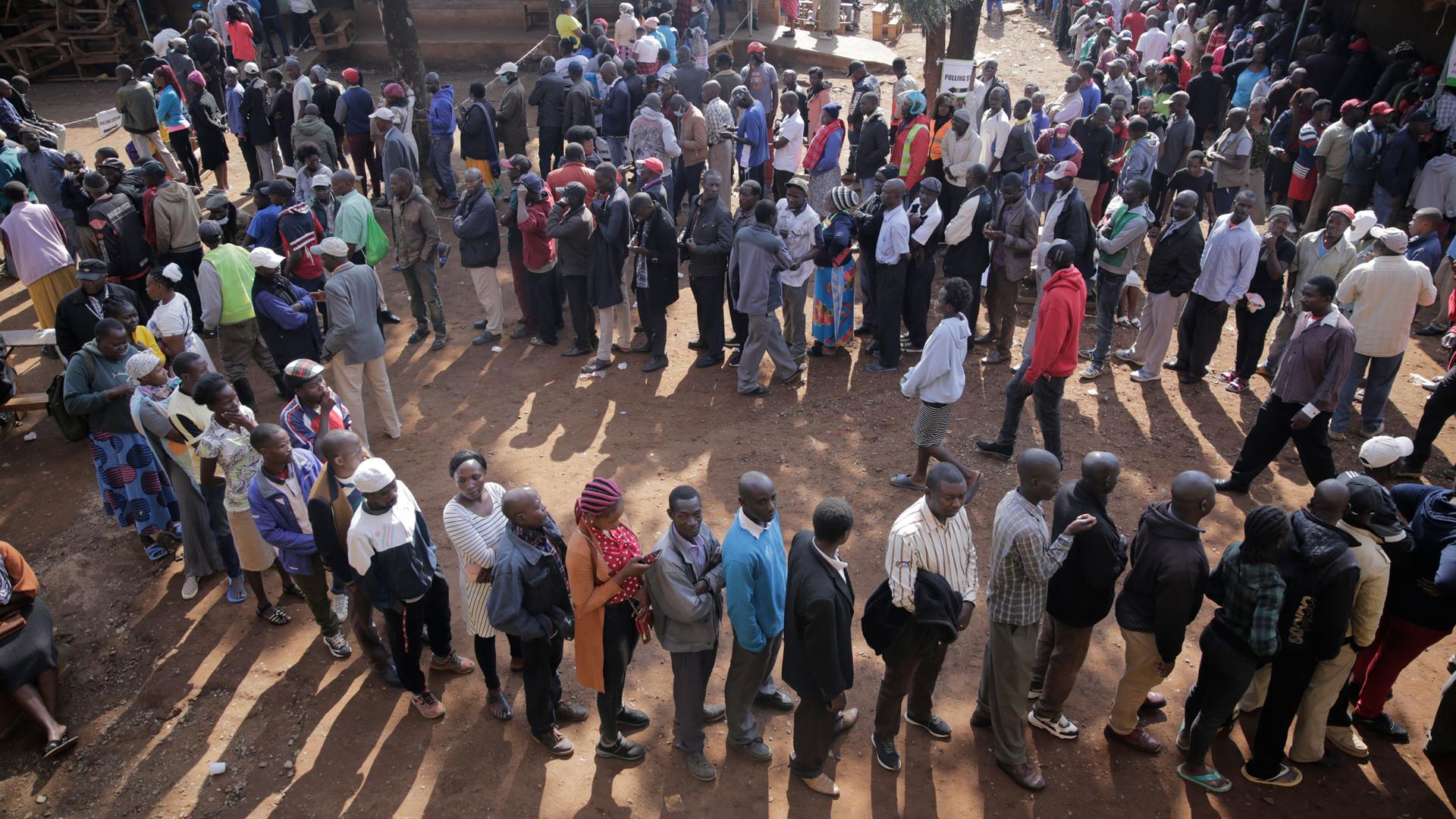In the Kibera slum in Nairobi, Kenyans jogged slowly alongside a caravan of sleek SUVs, cheering on presidential candidate Raila Odinga, who was there to cast his vote.
“I was so excited to see him that I couldn’t even sleep,” said Sulfa Adhiambo Abdul, who was in the crowd.
Millions of Kenyans took to the polls on Tuesday to vote for the country’s new leader. And for the first time, the election has largely been framed as a discussion about Kenya’s haves and have-nots, with Odinga, a member of the political elite from a “dynasty” family, facing off against Deputy President William Ruto, who campaigned with a “hustler” message.
Odinga is popular in this part of Kibera, an area he once represented in Parliament. After four attempts at a presidential run, supporters think now is Odinga’s time.
“He fought for our rights,” said Mophat Asiira, recalling Odinga’s track record of supporting the multiparty politics in Kenya and opening of the democratic space.

Unlike previous elections, this time, Odinga has support from his former political rival Uhuru Kenyatta, the current president.
In 2018, they made amends in a surprising turnabout referred to as “the handshake.”
Across town, in the neighborhood of Mlango Kubwa, voters lined up at a polling station filled with armed security officers.
Mlango Kubwa, like Kibera, has been declared hot spots for potential election-related violence in Nairobi.
“I’ve voted for Ruto,” said Lucy Wangui Kanyeria, proudly displaying her ink-stamped finger.
Deputy President William Ruto is the other top contender in this year’s election.
Despite serving as Kenyatta’s second-in-command for the past 10 years, Ruto has since fallen out with his boss in a public feud that has glossed the covers of local newspapers all year.
Ruto has since cast himself as a self-made man from a humble background, in contrast to the so-called “dynastical elite” from which Odinga and Kenyatta both hail.
“Ruto is a hustler like me, someone from the bottom,” said Kanyeria, referencing Ruto’s “Hustler Nation” slogan.
Kanyeria survives on a couple dollars a day by selling bars of soap.
“Life is hard for us,” she said, adding that she believes Ruto will improve the economy.
She said whoever loses, however, should accept defeat so that there’s peace.

Kenya has been marred by election violence, often along ethnic lines, in previous elections.
“In the previous elections, by now, everyone would have closed [their shops] because they feared violence,” said Karuti Kanyinga, a governance expert at the University of Nairobi.
“But the preelection violence hasn’t been there,” during this election, he noted.
One reason for this, Kanyinga said, is that more people are voting about issues, rather than along ethnic lines.
But Kenyan elections are known for their surprises, and observers will be closely watching the final announcement, and the final vote count.
“For the first time in decades, we seem to have the lowest amount of turnout in both the presidential elections and lower elections,” Kanyinga said.
Special attention has been on the youth who represent a large share of Kenya’s population but have had low voter registration during this election.
“As youth, and in general, as a citizen I think it’s my civic duty,” said 23-year-old law student Jemimah Odipo, who voted in the wealthy Westlands neighborhood.
“I think the current youth are more focused on changing our future than we are on voting on tribal lines or voting for someone we think our parents or probably our husbands would want,” she added.
Related: Kenya’s popular band Sauti Sol calls on Kenyans to vote
Correction: An earlier version of this story misspelled a name. It has been corrected.
